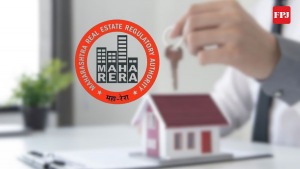Gurugram-based real estate giant Signature Global (India) Ltd has teamed up with WRI India to launch a pilot study focused on reducing air pollution generated during construction activities.
The initiative, announced on September 29, marks a significant step in the company’s ongoing sustainability efforts. Signature Global has already implemented dust control measures such as:
- Installation of air quality monitoring sensors
- Regular water sprinkling
- Use of protective covering materials
- Training and capacity building for on-site staff
Also Read: Bengaluru Real Estate Update: OC Waiver Extended to Larger Residential Plots
Pilot Study at Signature Global Daxin
The pilot project will be rolled out at Signature Global Daxin, under the company’s collaboration with the India Alliance for Clean Construction—a coalition committed to promoting sustainable building practices.
As part of the study, low-cost air quality sensors will be deployed at the site to:
- Track the effectiveness of dust mitigation measures
- Provide real-time data for site-level decision-making
- Explore scalable models for sustainable construction practices
Also Read: Supreme Court Orders Son to Vacate Properties, Upholds Rights of 80-Year-Old Father
A Data-Driven Approach to Cleaner Construction
“Through this partnership with WRI India, we aim to demonstrate how data-driven approaches can make dust mitigation more effective and scalable,” said Lalit Kumar Aggarwal, Co-founder and Vice Chairman of Signature Global (India) Ltd.
He further emphasized that the findings will not only improve on-ground practices but also inspire the broader real estate sector and shape policy frameworks for healthier, pollution-free construction.
Why This Matters
Construction is a major source of particulate matter emissions (PM10 and PM2.5), primarily from dust resuspension. These pollutants contribute to deteriorating air quality in the National Capital Region (NCR), posing health hazards for both workers and residents. By piloting this initiative, Signature Global aims to fill a critical gap in actionable, policy-oriented solutions for sustainable urban development.







